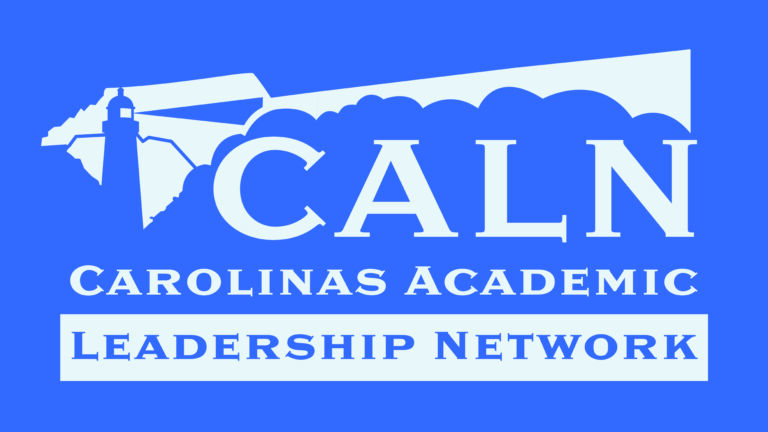Education Reforms You May Have Missed in the 2023-24 Legislative Session
The 125th South Carolina General Assembly has made quite the impact in our state, from repealing CON to enacting our state’s first education scholarship account (ESA) program. Here at Palmetto Promise, we’ve talked a lot about the ESA bill and the tremendous impact it has for families across the state. More families than ever before will have access to choices and flexibility in their children’s education, something they likely never could have afforded before. While a universal ESA expansion bill unfortunately fell short this year, there are still many other ways this General Assembly acted to improve our state’s education system. Many of these reforms went relatively unnoticed, but South Carolina students and families will feel their effects for years to come.
So, to catch you up to speed on the less flashy education bills that were passed this year, here are some education reforms you may have missed during the 2023-24 legislative session.
Competency-Based Education
We were pleased to see the General Assembly pass H.3295, which allows the adoption of competency-based education models, also known as “personalized learning.” Under this law, a school district may adopt an education model where a student is allowed to “master competencies along a personalized and flexible pathway.” In plain English, that means a student would be judged on mastery of content, not the amount of time they spend in the classroom.
Palmetto Promise has advocated for competency-based education since 2018; as we wrote then, “Allowing public schools to opt into a more flexible education model expands the menu of options that parents have when trying to find the right fit for their child.” Competency-based education moves our public schools away from the one-size-fits-all model that we’ve seen fall short time and time again. Instead, students will have the customized opportunity to learn at their own pace. Competency-based education also makes sure our high schools are not diploma mills, churning out graduates as long as they attended school, regardless of whether or not they develop skills or are truly educated.
The Aurora Institute writes, “In standards-based systems, the schools teach based on the grade level. The focus is on the standards. Competency-based is about teaching students, starting where they are in their own development and academic level and then ensuring they reach proficiency on the standards. You start with the students.”
That is exactly the kind of innovation that South Carolina needs. To read more about competency-based education, read our 2018 report.
Read to Succeed
In a significant but underrecognized victory, this spring, the General Assembly passed S.418, which moves the previously free-standing South Carolina Read to Succeed Office under the direction of the South Carolina Department of Education. Additionally, the new statute “requires the department to implement a comprehensive, systematic approach to reading which will ensure that classroom teachers use scientifically-based reading instruction and interventions in certain grades” (SC Revenue and Fiscal Affairs). This is significant. All the data shows that literacy is the single most important skill a child can learn, and if a student is not reading proficiently by third grade, it sets him behind for life. This new law goes a long way toward implementing the science of reading in classrooms and ensuring our students are taught using proven education strategies.
We have seen this approach work wonders in Florida after their similar 2002 law, and more recently, we saw an amazing success story out of Mississippi. By training teachers in the science of reading and prioritizing literacy, Mississippi’s fourth-grade reading scores went from the second worst in the country in 2013 to 21st in 2022. The profound and permanent impact these literacy skills will have for the Magnolia State’s K-12 students cannot be understated. We need to bring that same success here to South Carolina.
Palmetto Promise, under the leadership of Ellen Weaver, was instrumental in the initial passage of Read to Succeed. And since her election as Superintendent, Weaver has continued to prioritize childhood literacy through the LETRS program. You can read Superintendent Weaver’s statement on S.418 here.
Extending State Lottery Scholarship Stipends to Education Majors
We all know that South Carolina has a teacher shortage. We also have a severe problem with our state’s high-achieving students brain-draining away from the state, rather than living and working here as adults and contributing to our economy. S.125 aims to address both of these problems by extending the existing SC Life and Palmetto Fellows scholarship stipend for STEM students (an additional $2,500-$3,300 per year) to college students majoring in education. To receive the scholarship boost, the student must agree to teach in a SC school after graduation for one year for every year the stipend is received (a maximum of three years). The law explicitly states that, in addition to other subjects the Commission on Higher Education deems appropriate, mathematics education and science education majors are eligible for the stipend, as well as students majoring in mathematics, science, or another subject and obtain teacher certification before they graduate. We are pleased to see this bill pass, and we hope it will encourage many more high-achieving South Carolina students to go into education as a profession and teach in our state’s schools!
Barnwell County School District Consolidation
Back in 2018, Palmetto Promise published our groundbreaking report Stronger Together: Expanding Opportunity Through School District Consolidation. In it, we argued that South Carolina should consolidate school districts that are both small and shrinking; it was not fiscally responsible to leave them as separate districts, and administrative funds saved could be invested in the classroom. After our report came out, newly-elected Governor Henry McMaster mentioned consolidation in his State of the State speech in 2019 and a number of pieces of legislation were filed in the subsequent legislative sessions. In the last few years, we have seen the General Assembly pass several consolidation bills. The most recent consolidation bill was S.654, which, in 2023, flew through both chambers to consolidate the three existing districts in Barnwell County (Barnwell County School District 45, Barnwell County Consolidated School District, and Barnwell County School District 80) into one, unified Barnwell County School District. The consolidation goes into effect in just a few weeks: July 1, 2024. The three Barnwell districts join 9 other small school districts that have consolidated since our 2018 report. In these districts, residents should see their school funding dollars go further, experience less waste on unnecessary overhead, and work more efficiently to serve students and families.
Military Temporary Remote School Enrollment Act
Children of military families often have a uniquely complicated education experience, characterized by frequent moves and, because of that, lots of paperwork to enroll in local schools, which often can’t be completed until the family arrives in South Carolina and can enroll in person. The 2023 passage of H.3797 (the Military Temporary Remote School Enrollment Act) will make school enrollment significantly easier for military children when their family is stationed in South Carolina at one of our seven active military installations. It waives normal proof-of-residency requirements for school enrollment for students with a parent stationed for military duty in South Carolina or pending transfer to a military installation within this State while on active duty. Military families are now able to submit enrollment documentation online before they arrive in South Carolina, so students can jump right into school even if they are moved in the middle of the year. New statute makes it clear that “any ambiguity” regarding the student’s residency “must be resolved in favor of enrolling the pupil.” This removes a significant paperwork hurdle for military families in our state. We salute our state’s military families and thank them for the sacrifices they make!
Other important education bills signed into law this session are…
- H.3908, which establishes paid family leave for school district employees when they adopt a child or receive a new foster placement.
- H.4023, which permanently establishes the First Steps program and expands duties for its Board of Trustees and Local First Steps Partnership Boards
- S.1188, which requires that parents be given written notice of a student’s expulsion hearing that include students’ rights to legal counsel and all other regular legal rights
- S.245, which protects the integrity of school booster clubs by banning anyone with a prior financial crime conviction from serving as its financial officer
All of these bills represent steps forward for South Carolina’s education system, whether large or small, and we hope you will notice their impacts in the coming months and years.







